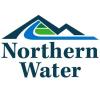Building cross-scale understanding and collaboration to support wildfire-resilient water systems
In phase 1, we will conduct a document review and interviews, and implement a survey to understand how water providers and customers of water systems at multiple scales in the Intermountain West view the resilience of their water system. We will engage with small, rural utilities (engaging through partners at the Colorado River District and directly with existing connections such as Cortez, CO and Durango, CO), larger urban systems (e.g., Denver Water, SLCDPU), medium urban systems (e.g., Boulder, CO and Weber Basin Water Conservancy District), and Tribal systems (e.g., Wind River Indian Reservation). Analysis of the document review, interviews, and surveys will inform identification of key components of water system resilience. This phase will leverage activities underway by the Water Utilities Climate Alliance (WUCA) and other WWA projects.
In phase 2 of this project (2025-2026), we will convene a cross-scale, multi-agency workshop with water system and land managers from the Intermountain West region who rely on or manage headwaters in high mountain forests that are particularly vulnerable to wildfire and changing snowfall. Building on recent tabletop exercises convened by Denver Water and developed by the Water Utilities Climate Alliance (WUCA), we will bring together experts in mountain ecology, hydrology, resilience, and water management to share the latest scientific understanding and identify opportunities for cross-learning and collaborative actions to build water system resilience. As appropriate, we will engage with and leverage regional experts and research centers that focus on critical issues of concern to water managers, including the NOAA Regional Climate Centers and the National Drought Mitigation Center.

